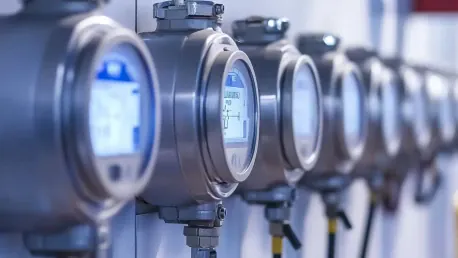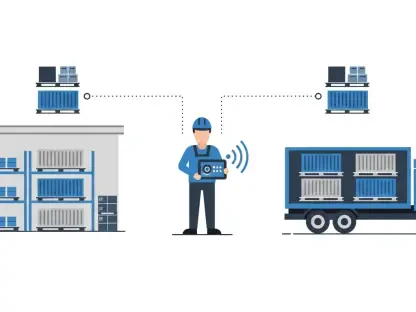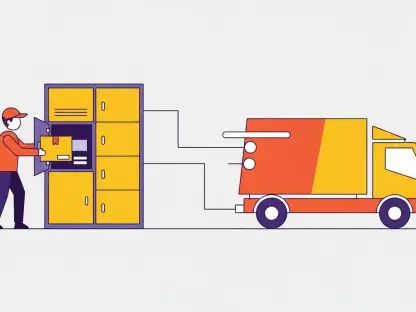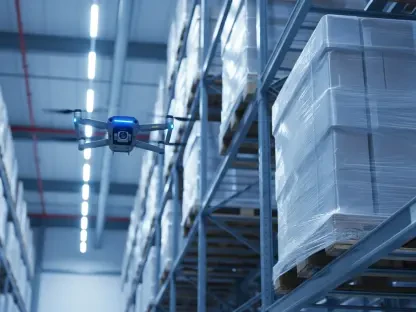The transformative impact of technology, specifically ultrasonic smart meters, has brought about a revolution in propane inventory management. These innovative devices are not only streamlining operations for propane marketers but also enhancing the overall customer experience, ushering in a new era of efficiency and precision in the industry. With the capability to monitor consumption in real time, propane companies can effectively predict and prepare for fluctuations in demand, helping them avoid service interruptions and ensure timely deliveries, even during peak seasons.
Enhancing Operational Efficiency
Smart meters provide propane marketers with a significant advantage in tracking propane usage and managing inventory levels. The ability to monitor consumption in real time allows companies to optimize their delivery schedules, ensuring that customers receive their propane when they need it most. This proactive approach becomes particularly crucial under unpredictable weather conditions, such as sudden cold snaps or extended winters, which can lead to surges in product demand and potential supply shortages. Predicting and staying ahead of such fluctuations is essential for maintaining customer satisfaction and avoiding disruptions in service.
Moreover, the real-time data provided by smart meters enables marketers to make informed decisions about inventory management. By analyzing consumption patterns, companies can adjust their delivery schedules to prevent any gaps in supply. This ensures that customers never run out of propane, which is especially important during peak seasons when the demand for propane is at its highest. The improved operational efficiency brought about by smart meters ultimately translates to better customer service and increased customer loyalty.
Strategic Inventory Management
One of the major advantages offered by smart meters is the ability to reduce the need for additional bulk storage. With smart meters installed on residential tanks, these tanks can effectively serve as alternative storage options, allowing companies to maximize storage capacity without investing in additional large tanks. For example, implementing 100 500-gallon tanks could potentially eliminate the need for a 30,000-gallon bulk tank. This innovative approach enables propane companies to manage inventory more dynamically, by stimulating demand during slower seasons and building allocation amounts, leading to improved operational efficiency and cost savings.
Propane companies can also strategically schedule deliveries before peak demand seasons when prices are typically lower. By filling tanks ahead of time, companies can avoid stress on resources during the busiest periods, further improving operational efficiency. This flexibility allows marketers to fill tanks before peak seasons when the delivery schedule is less demanding, reducing the need for deliveries during the busiest times when resources are stretched thin.
Another significant advantage of smart meters is their role in enhancing inventory management. By leveraging real-time data, propane marketers can make more informed decisions about product distribution. This capability becomes particularly crucial under unpredictable weather conditions, such as sudden cold snaps or extended winters, which can lead to surges in product demand and potential supply shortages. Predicting and staying ahead of these fluctuations is deemed a critical success factor in the propane industry.
Customer-Centric Benefits
On the consumer side, smart meters greatly enhance the ease with which customers can monitor their propane usage, schedule deliveries, and arrange for service through user-friendly applications. This technology allows consumers to integrate propane usage with other energy sources, creating a comprehensive and efficient energy management system. With smart meters, customers can access real-time information about their propane consumption, making it easier to plan for their energy needs and avoid running out of fuel.
Monthly usage bills, facilitated by smart meters, offer a more predictable and financially manageable option for consumers. As product prices rise, this consumption-based billing model helps attract and retain customers by providing an economical alternative to traditional fill-and-pay systems. This model allows customers to pay for the propane they use each month, rather than dealing with the expense of filling a tank, which can be a significant financial burden.
Smart meters also promote consumer engagement and satisfaction by offering convenient and flexible options for managing propane usage. By providing customers with easy-to-use applications and real-time data, smart meters enable them to take control of their energy consumption. This level of transparency and control fosters better customer relationships and helps companies differentiate themselves in a competitive market.
Reducing Administrative Overhead
The shift away from “will call” customers to a consumption-based monthly billing system significantly simplifies administrative tasks for propane marketers. With smart meters providing real-time data on propane usage, marketers no longer need to engage in extensive communication and planning for each individual delivery, leading to a more streamlined process. This transition reduces administrative overhead and allows companies to allocate their resources more efficiently.
Furthermore, with customers not paying for each fill, marketers gain greater control over product distribution. This flexibility allows companies to optimize their delivery schedules for improved efficiency and less strain on resources. By strategically scheduling deliveries and managing inventory based on consumption data, propane companies can reduce the number of deliveries needed during peak seasons, further improving operational efficiency.
Smart meters also enable propane companies to adopt a consumption-based billing model. This emerging service, despite the limited current adoption of propane meters, allows marketers to offer a pay-as-you-go option. This model can attract new customers and retain existing ones, particularly if competitors do not provide this option. Providing a more predictable and convenient billing process can improve customer satisfaction and retention.
Precision and Reliability of Measurement
Ultrasonic smart meters are known for their reliability and precision in measuring propane usage. Unlike mechanical gas meters, which can wear out and become inaccurate over time, ultrasonic meters provide accurate measurements throughout their lifespan without any mechanical deterioration. The absence of moving parts in the measuring chamber ensures that there is no interference between the fluid and the measurement group.
Accurate measurements are crucial for maintaining profitability and providing reliable service to customers. Smart meters prevent propane marketers from inadvertently giving away product due to inaccurate readings, ensuring that companies maintain their profit margins. This level of precision and reliability fosters trust and confidence among customers, who can rely on their smart meters for accurate billing and consumption tracking.
This reliability and precision offered by ultrasonic smart meters are complemented by their ease of installation and maintenance. Propane companies can quickly deploy these meters, integrating them into their existing infrastructure without significant disruption. The long-lasting accuracy of these meters further reduces maintenance costs and ensures consistent performance, enhancing the efficiency of propane inventory management.
Driving Business Growth
The transformative impact of cutting-edge technology, notably ultrasonic smart meters, has revolutionized propane inventory management. These advanced devices are not only making operations more efficient for propane marketers, but also significantly improving the overall customer experience. This innovation brings a new level of efficiency and accuracy to the industry. By enabling real-time consumption monitoring, propane companies can better predict and manage demand fluctuations. This foresight allows them to avoid service interruptions and ensure prompt deliveries, especially during peak periods. The ability to anticipate changes helps companies maintain a steady supply, enhancing reliability and customer satisfaction. This technological advancement marks a significant step forward in optimizing supply chains and operational workflows, reinforcing the critical importance of technology in modernizing traditional industries.









